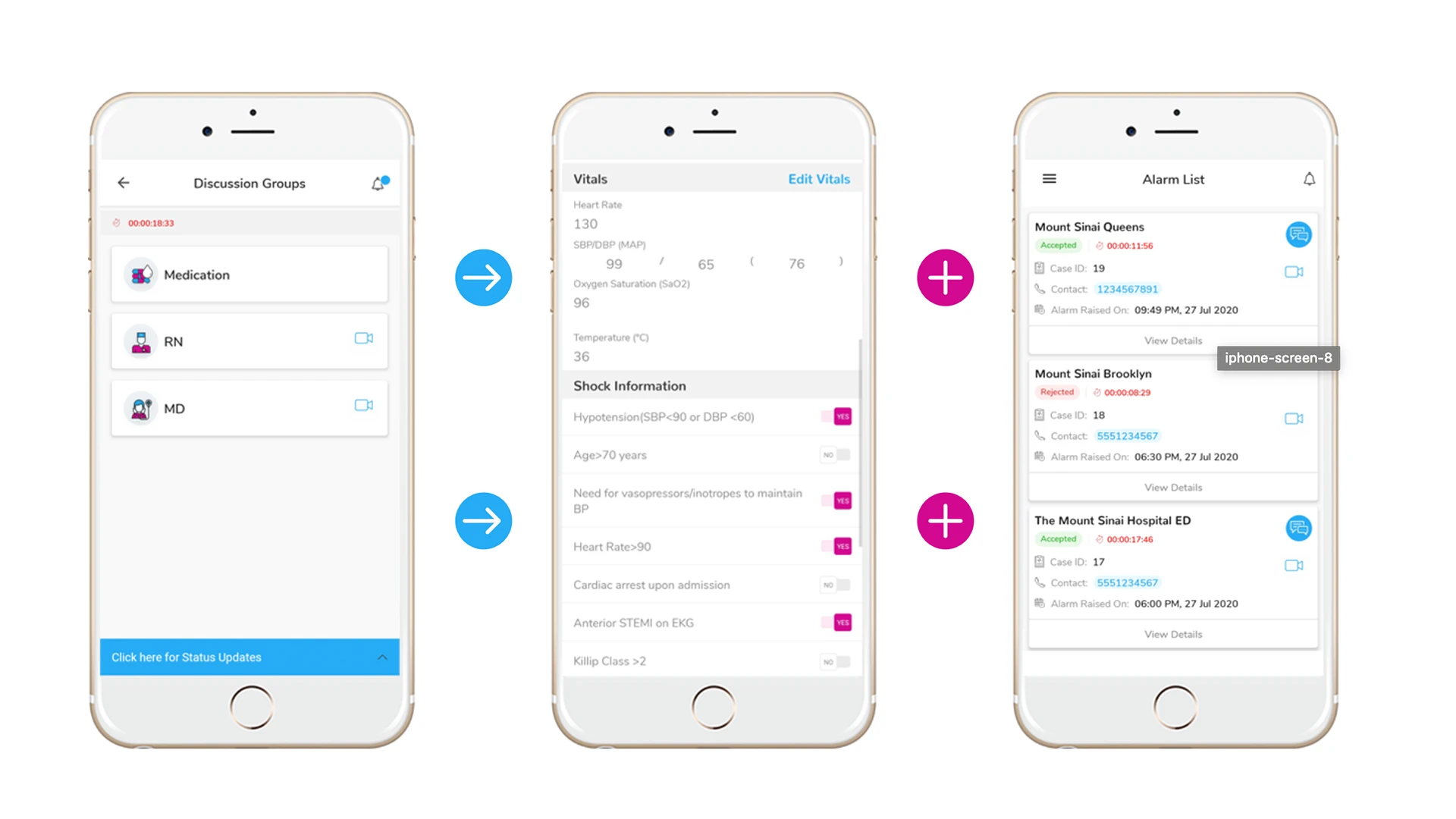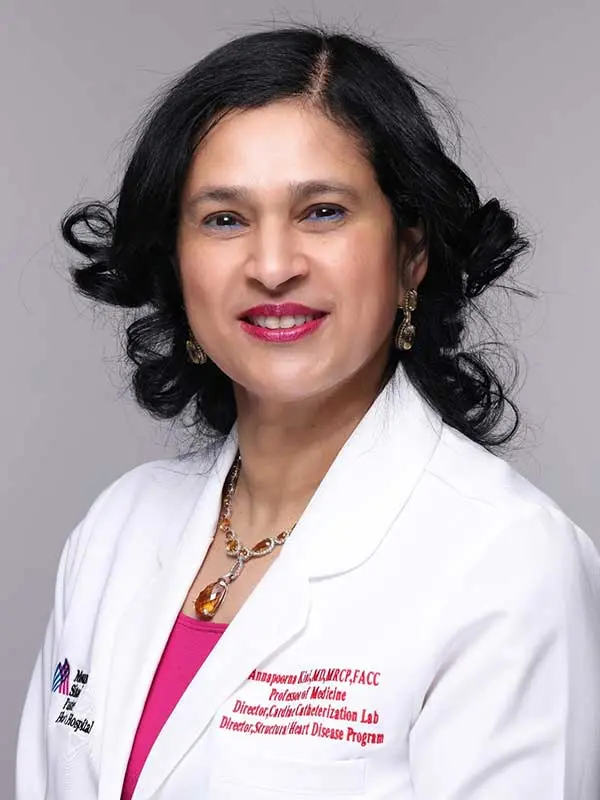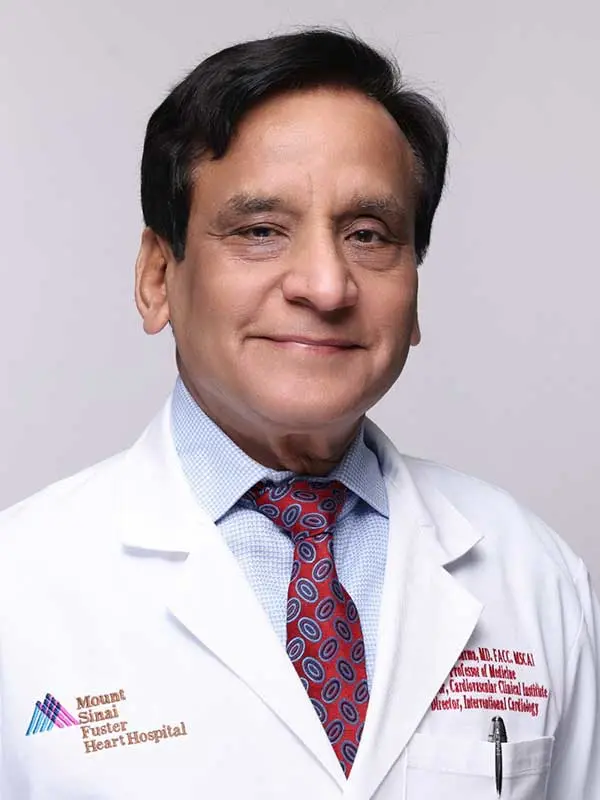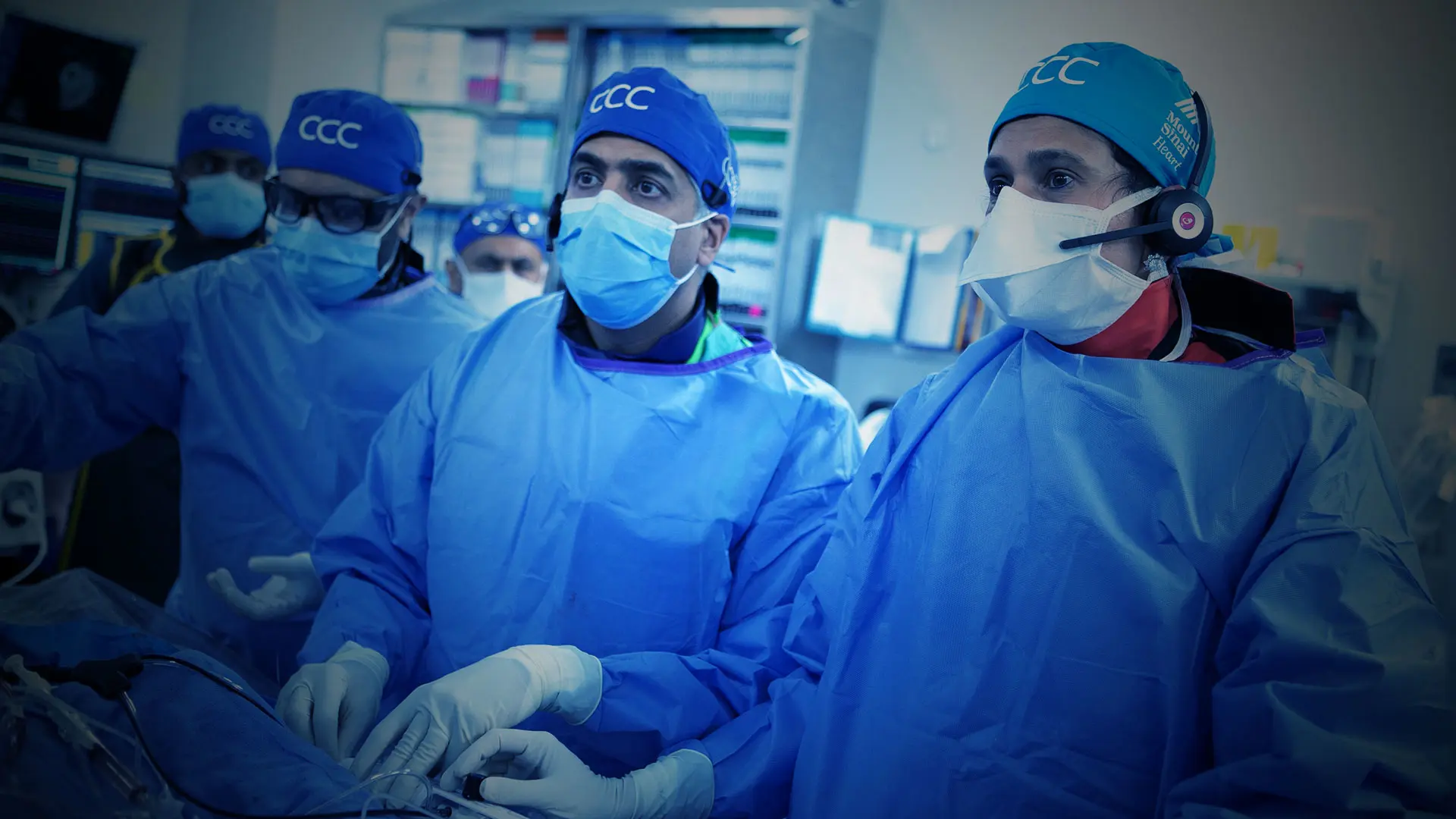The Mount Sinai Health System is using a first-of-its-kind mobile application to expedite and
enhance care for heart attack patients. The app, developed by Mount Sinai’s interventional
cardiologists, Emergency Department physicians, and nursing team, improves communication
among doctors, nurses, and the clinical command center so patients can get more rapid care to improve outcomes.
The app, called “STEMIcathAID,” targets patients with an ST-segment elevation myocardial
infarction (STEMI) who need percutaneous coronary intervention (PCI). Timing is essential in
restoring blood flow to the blocked heart arteries of these patients and preserving heart muscle
function; otherwise, the heart may be permanently damaged. Outcomes are significantly better if the PCI is performed by experienced interventionalists at a tertiary facility, such as the Cardiac Catheterization Laboratory at The Mount Sinai Hospital.
Annapoorna S. Kini, MD, Director of the Cardiac Catheterization Laboratory, is leading the
initiative to expedite such care in the Mount Sinai Health System. She designed the application and worked with an app developer to help realize the need for and launch STEMIcathAID.
“This is a unique platform that will make the standard of care of STEMI patients more
predictable, efficient, and urgent. With enhanced communication, we can more reliably
activate the Cath Lab and prepare for the patient’s arrival at the very start of treatment in the
emergency room. By getting to the Cath Lab faster, patients will have fewer complications from the heart attack and may be discharged earlier from the hospital,” says Dr. Kini, the Zena and Michael A. Wiener Professor of Medicine at the Icahn School of Medicine at Mount Sinai. “Our app, modeled on the American Heart Association’s recommendation of rapid Cath Lab-first treatment, can serve as a model for change throughout the United States.”
STEMIcathAID launched on July 20, 2021. It involves Mount Sinai Queens, a community hospital in the borough’s Astoria section, and The Mount Sinai Hospital’s Cardiac Catheterization Laboratory on Manhattan’s Upper East Side. Mount Sinai Queens does not have a catheterization lab, and nearly 150 patients every year with STEMI are transferred from the Mount Sinai Queens Emergency Department to The Mount Sinai Hospital’s Catheterization Laboratory for PCI. The two hospitals are roughly six miles apart, but heavily congested New York City traffic can create challenges in transferring STEMI patients. The app aims to expedite this process.
“This is a unique platform that will make the standard of care of STEMI patients more predictable, efficient, and urgent.”
- Annapoorna S. Kini, MD

The app improves communication among doctors, nurses, and the clinical command center so patients can get more rapid care to improve outcomes.
When a patient arrives at the Queens emergency room with chest pain and is suspected to
have a STEMI, the physician opens the STEMIcathAID app and taps a “raise alarm” button. They perform an electrocardiogram and upload the results along with the patient’s basic
information. The app sends an instant notification to the on-call interventional cardiology
physician at The Mount Sinai Hospital and to the transfer center. The on-call physician reviews the information and decides if the patient needs a Catheterization Laboratory procedure. If so, the on-call cardiac catheterization team receives an immediate notification through the app. All cardiac team members log in and begin communicating with the team in Queens through a HIPAA-compliant chat or video call. As the patient is moved to the ambulance and driven to The Mount Sinai Hospital, the Cardiac Catheterization Laboratory team can track their progress through the app while preparing the room and equipment for the emergency procedure. That way there is no delay for the patient once they arrive for treatment.
Without the app, doctors and nurses must rely on multiple telephone calls between hospitals,
and the EKG cannot be read immediately by the Manhattan cardiologist.
“The single platform that communicates with all necessary departments allows the Emergency
Department to reduce the number of calls and communication devices that the doctors and
nurses typically need to use for these cardiac patients. These cases typically would require
multiple phone calls to coordinate among the emergency room, cardiology, EMS, and the
transfer services,” says Matthew Bai, MD, Assistant Director of Emergency Medicine at Mount
Sinai Queens. “The app has the potential to increase efficiency and reduce the time it takes to
get to the Cath Lab for improved patient care.”
Mount Sinai used the app for the first time on a case involving a 46-year-old man who arrived at the Queens emergency room with chest pain and was going into cardiac shock. He was
transferred within 20 minutes to The Mount Sinai Hospital’s Cardiac Catheterization Laboratory, where doctors successfully completed his stenting procedure. Dr. Kini says the app saved a half hour of critical time.
The app also prompts nurses and physicians to give discharged patients the proper information about medication, diet, and follow-up care, including the post-heart attack recommendations of the American Heart Association. This should help keep patients from needing to return to the hospital.
Dr. Kini hopes to introduce the platform across the Mount Sinai Health System. For more
information about the STEMI app and other cardiology applications designed to share
knowledge with physicians around the world, go to Cardiology Apps.
Featured

Annapoorna S. Kini, MD
Director of the Cardiac Catheterization Laboratory at The Mount Sinai Hospital, and the Zena and Michael A. Wiener Professor of Medicine

Samin K. Sharma, MD
Director of Interventional Cardiology, The Mount Sinai Hospital, and Anandi Lal Sharma Professor of Medicine in Cardiology
